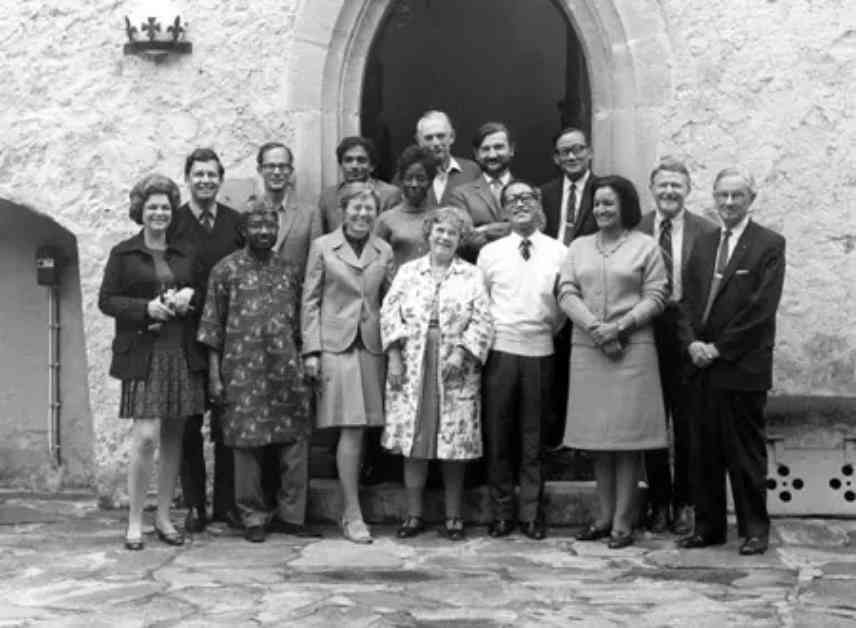Exploring the Cultural Inquiries of Taiwanese Psychiatrists in the 1950s: A Key to Understanding Transcultural Psychiatry and Anthropology
Taiwan, a small island with a rich history and complex geopolitical landscape, holds valuable insights into the development of global mental health, anthropology, and transcultural psychiatry. The cultural inquiries of Taiwanese psychiatrists in the mid-20th century offer a unique perspective on the intersection of culture, mental health, and society. In 1996, the retirement of Hsien Rin, the esteemed chief of the Department of Psychiatry at National Taiwan University, was celebrated with the publication of his collected papers, focusing on socio-cultural psychiatry. Rin, remembered as a poet, humanist, and surprisingly, an anthropologist, played a significant role in advancing transcultural psychiatry in Taiwan from the 1950s to the 1970s. Despite his contributions, Rin remains largely overlooked in the historiography of transcultural psychiatry.
Transcultural psychiatry, a subdiscipline that incorporates insights from psychiatry, anthropology, and psychology, has gained traction in recent years, particularly in postcolonial contexts. Scholars like Stefania Pandolfo, Katie Kilroy-Marac, and Ana Antić have explored the intersections of transcultural psychiatry with global mental health and colonial legacies. Taiwanese psychiatrists, including Hsien Rin and Tsung-Yi Lin, were pivotal in bridging the gap between different cultural perspectives and mental health practices. Their work laid the foundation for a deeper understanding of how cultural factors influence mental health outcomes.
Farewell to the Japanese Empire, Encountering North America
After World War II, Taiwanese psychiatrists like Tsung-Yi Lin and Hsien Rin found themselves navigating a postcolonial landscape as Taiwan transitioned from Japanese rule to Chinese governance under the Kuomintang (KMT) regime. The reorganisation of institutions like National Taiwan University (NTU) presented challenges and opportunities for these psychiatrists to redefine their approach to mental health. Influenced by their Japanese training in descriptive psychiatry, Lin and Rin were tasked with integrating North American trends in dynamic psychiatry into their practice. This intellectual imperialism forced them to adapt their methods and perspectives to align with Western psychiatric norms.
Tsung-Yi Lin’s Formosa Study, a groundbreaking psychiatric-epidemiological survey conducted among Taiwanese communities, exemplified this shift towards a more socio-cultural analysis of mental health. While Lin initially drew inspiration from his mentor Yushi Uchimura’s eugenic approach, his exposure to North American psychiatry during a study abroad program reshaped his methodology. By emphasising the impact of socio-cultural factors on mental health outcomes, Lin and Rin challenged traditional notions of heredity as the sole determinant of mental disorders. This paradigm shift marked a critical turning point in the evolution of transcultural psychiatry in Taiwan.
The “Not-Yet Anthropologist” in a Settler Colonial Society
Hsien Rin’s ethnographic work among the Indigenous Peoples of Taiwan shed light on the complexities of mental health within a settler colonial context. While Rin lacked formal training in anthropology, his keen observations and insights into the socio-economic issues facing the Nan-Shih Amis community were widely recognised. His study of alcoholism among Indigenous males highlighted the interconnectedness of masculinity, acculturation, and economic stress in shaping mental health outcomes. However, Rin’s analysis fell short of critiquing the broader impacts of settler colonialism on Indigenous communities.
Rin’s ethnography paved the way for further research on alcohol consumption and mental health interventions among Indigenous Peoples in Taiwan. His collaboration with anthropologists like Yih-Yuan Li and economists like Ying-Kuei Huang sparked interdisciplinary dialogue on the social determinants of mental health. Despite some methodological criticisms, Rin’s work catalysed a shift towards a more nuanced understanding of the cultural and environmental factors influencing mental health outcomes in Taiwan.
Toward Transcultural Psychiatry and Psychological Anthropology
By the late 1950s, Taiwanese psychiatrists like Hsien Rin had begun to engage with the international network of transcultural psychiatry, forging connections with prominent figures in the field. Rin’s collaboration with McGill University psychiatrists and anthropologists highlighted the growing interest in transcultural approaches to mental health. His efforts to train the next generation of psychological anthropologists in Taiwan further solidified the country’s position as a hub for interdisciplinary research.
The intellectual exchanges between Taiwanese psychiatrists and their international counterparts underscored the importance of transcultural perspectives in understanding mental health. By transcending traditional disciplinary boundaries, these scholars laid the groundwork for a more holistic and culturally sensitive approach to psychiatric care. The evolving field of transcultural psychiatry in Taiwan continues to shape our understanding of the complex interplay between culture, society, and mental health.
In conclusion, the cultural inquiries of Taiwanese psychiatrists in the 1950s offer a valuable lens through which to explore the development of transcultural psychiatry and psychological anthropology. By examining the historical context in which these scholars operated, we gain insight into the challenges and opportunities they faced in redefining mental health practices in a postcolonial society. Their contributions to the field continue to inform and inspire researchers seeking to understand the cultural dynamics of mental health across diverse populations.












